Greek Letters: How I Learned To Speak and Write Greek
I was born an orphan in Athens in the 1950s and was adopted by Greek Americans who had very strong bonds to Greece and, throughout my life, have reinforced those bonds in me. This helped me on my journey to learning the Greek letters and alphabets.
We have relatives in Athens, and on the Ionian islands of Lefkas, where Sappho dramatically flung herself from the cliffs of the majestic Cape of Lefkas to her death, and on Ithaca, home of the mythic Odysseus and the epic poem which charts his ten-year journey home.
It was exactly there, where my very own Greek Odyssey began, a trip planned with my cousin, Amy, and her family, with whom I had been separated by distance and time for many years. This reunion, after maybe 30 years, and our subsequent journey together would ultimately lead to two of the most delightful hours that I spend each and every week. On Monday.
The Role Of Fate In Making Me Begin My Journey To Learning The Greek Letters, Alphabets and Words.
My mother, at almost 90, had come into failing health, ending up in a hospital, when she visited us in California. My cousins had serendipitously gotten in touch and, as luck would have it, we all happened to be in the same part of the state.
As it turned out, this would be the last time they and she would see each other. But that reunion sparked a delightful, renewed, ongoing adult relationship as we are all now in our 60’s and have realized, more profoundly than ever, the double-edged sword of time, both its gifts and its limitations.
Our Plan To Return to Greece.
During one of our evenings out, laughing, eating, drinking wine and reminiscing about our childhoods, funny relatives, and our quirky delightful grandparents, a discussion about travel, emerged and one of us threw out the notion that we should go to Greece together and wouldn’t that be fun. Yes, wouldn’t it.
How often we say things like that. Dreaming about what could be, but they are mostly wistful notions that never come to pass. Somehow, though, the idea of our own return to Greece together, not only stuck but came to fruition.
Over months, we planned the trip and before we knew it, the six of us were chatting incessantly on a plane to Athens the following summer.
Our Trip To Greece.
We had decided to visit the home of our maternal grandparents, who were sisters and were as close as any two people could be. They were born and spent their early years in the coastal village of Vathy on Ithaca, a postcard-perfect place on a less-visited Greek island that you come to after navigating a narrow body of water flanked by barren walls of stone.
Turning a corner you enter a deep, horseshoe-shaped bay. You don’t expect anything to be there and you certainly don’t expect its beauty. The village sort of appears. Reveals itself. Like a mirage.
There is no airport, so the only way there is by boat, which, thankfully, limits the number of tourists to the precious, tiny island. When I went as a girl with my grandparents years before, we paid a fisherman to shuttle us there in his small fishing boat with our luggage from Lefkas.
Today you can hire a water taxi like we did this time. By boat, though, is a poetic way to connect to this place.
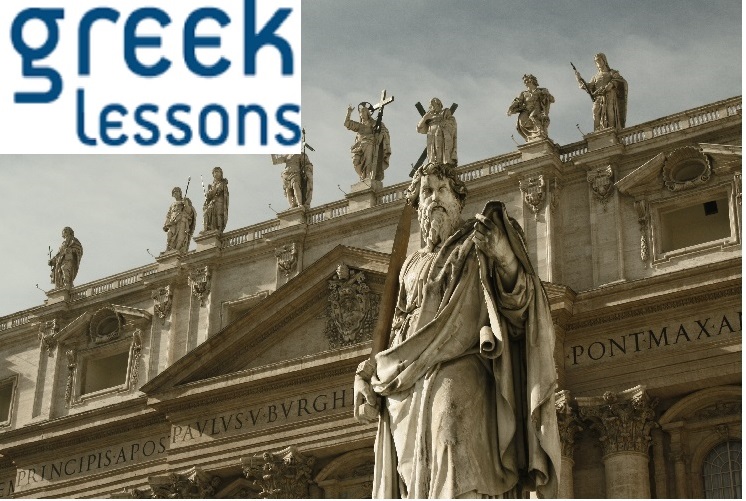
Our Spectacularly Big Fat Greek Family.
Our family was a tribe of matriarchs. It’s not that there were no men. There were, plenty, like my own grandfather, Dionysus (Dan he was called), who was full of Greek bravado and bluster, but it was the women, in this case, my grandmother who ruled, even though it seemed like the men were in control.
Like in the now cult classic, independent film, My Big Fat Greek Wedding, the line goes something like this: “The man is the head, but the woman is the neck and she can turn the head any way she wants.”
Such was the case in our big, fat Greek family, who descended from the Thomas clan in Vathy, Ithaca.
I had been to Ithaca before with my grandmother and another one of her sisters, but I was a teenager then and, predictably, not as aware and appreciative as I was on this trip. To share the experience with my cousin, whose grandmother was the closest of my grandmother’s siblings and had remained so throughout their lives, was, to say the least, very special.
We were charmed and moved and engaged with this place, thinking what it must have been like for them when they lived there as girls, growing up at the dawning of the 20th century. We took pictures together at the harbor where they must have walked and played together and decided that on our next trip we would find their ancestral home.
How Hearing Greek Improved Our Knowledge of The Greek Letters, Alphabets, and Words.
Hearing Greek is so familiar and like the smell of a garlic-laden lamb roasting in the oven, a pot of avgolemono soup simmering on the stove, reminds me of home.
Speaking Greek and writing the Greek letters, however, was a struggle and we lamented the fact that we hadn’t taken our Greek lessons seriously as young girls and that our parents did not speak to us in Greek at home.
Writing the Greek letters at home was, of course, out of the question
Of course, my grandparents spoke Greek, as did my cousin’s grandparents. My parents spoke Greek. My mother was fluent and, actually, her Greek was absolutely pristine. My spouse, who was our translator, also speaks Greek, to precision. It was her first language. I couldn’t wait for her to teach me all the Greek letters and words she knew.
We, as kids, were required to attend Greek school, which was provided at each of our elementary schools in Gary, Indiana, and at our church, built not as much with religious intention and fervor than for cultural grounding and permanence in a new country far from the homeland.
We were the Greek diaspora of Gary, Indiana, making a new life. While assimilation was important, our heritage must be preserved and celebrated and our language, spoken.
Our Greek teachers were well regarded, widely known, and respected in the community, feared by we kids and beloved, all at the same time. After a long day at “American” school, we were relegated to another couple of hours learning the language of our people by teachers named Bafaloukos, Paraskis, and Halvadzis, all characters with their own special styles of teaching.

Kyria (Mrs.) Bafaloukos, the general, slapping the ruler in her hand to punctuate the reciting of our “alpha-VEE-ta” (the alphabet) as she paced back and forth in the front of the room. Kyria Paraskis, the sweet prodder, asking again and again for our attention, always patient and understanding.
And Kyria Halvadzis, the distracted, with a lilting, high-pitched voice, who often stopped a lesson to recite a poem (in Greek letters) that happened to come to mind. (In private lessons, she would often pull out her mandolin to sing a Greek folk song. Oh, that soaring vibrato of hers!)
These were a trying couple of hours. We were tired, restless children, learning grammar, reading aloud, writing unfamiliar Greek letters, reciting endless dialogues and poems, all before dinner, our bath before bed and the “American” homework that was still waiting.
Greek was mandated then, deemed a necessity by our parents, but, alas, we had absolutely no appreciation for what learning it meant.
As an adopted person, my relationship with Greece and Greek letters the language has always taken on a deeper meaning. The only thing I have ever known for certain about myself is that I was born Greek and that, as an infant, was relinquished to a public foundling home by my unwed, teenage birth mother in the center of Athens, the city of my birth.
To strengthen my connection, I have retained my Greek citizenship, something very precious to me. My adopted mother was very strongly connected to her father’s home on Lefkas and his family there, which included aunts and uncles and first cousins and now their children and grandchildren.
And so that became my family, too. Her identity became mine. Our island. Our ancestral village of Agios Petros (St. Peter). We cling to what we know. We learn to love. And I was taught to love that place and that Greek family.
The Book That Helped.
Our trip was glorious and we promised each other to return and to learn Greek letters as adults. And so, my quest began, in earnest, to find a teacher or a school in the Bay Area that would tutor me in Greek letters.
In the meantime, my relatives, who appreciated my thirst to deepen my connection to the country, Greek letters, and its language, sent a book so that I could begin to learn Greek “without a teacher”, which, of course, I dove into.
Things happen for a reason. Sometimes when you are focused on one thing or another, related other things somehow emerge that reinforce that which you have become interested in.
What I Learned In The Course Of My Research.
During my research, I happened upon a beautiful article by Daniel Mendelsohn, a writer for The New Yorker, about teaching The Odyssey to his students at Bard, his love for and knowledge of the Greek letters and language, and a trip he took with his aging father.
It was a cruise designed to experience and discuss the places where Odysseus stopped on his way back home to Ithaca. The cruise brought father and son closer.
In addition, the article that told the tale led me to his book, An Odyssey: A Father, A Son and an Epic, from which the article was excerpted. As Mendelsohn chronicled life with his dad and his getting older, my mother was also failing, falling into a deep, dark abyss of the mind, as dementia slowly erased her thoughts and her memory and of the Greek, she spoke so beautifully.

I called every church in the San Francisco bay area. Did they teach adult learners, Greek letters? Mostly no. One had classes that were already full.
The times didn’t work for my university schedule and my commuting hours. Berkeley taught Modern Greek for university credit, but again, the class times fell in the middle of my workday and conflicted with my own teaching schedule and work as the chair of my department.
One last call to a church at which my childhood friend, Father Ari, had been a priest. Unbeknownst to me, I had passed it every day on my way back and forth to Hayward, the city where my university resides and where I taught.
The Ascension Greek Orthodox Cathedral sits in the Oakland hills nestled on a hill just beneath The Church of Jesus Christ of Latter-Day Saints. That is the structure you see as you wind up and down the 580, a mammoth, white, cubist structure that resembles a very fancy wedding cake, with a gold spire that rises to the heavens. It is illuminated at night.
You cannot miss it. Today it is a tourist attraction. The Mormons have opened it up for tours. But the Greek Orthodox Cathedral is there, too. Next door. Modest, simple, and understated in its beauty.
“We do offer Greek lessons to adult learners,” the woman in the office said on the phone, “and some are on Saturdays, too.”
Eureka, I said to myself, which happens to be a Greek word, by the way. It is pronounced, EV-ree-ka, and means, I found it!
The Greek School.
I e-mailed the principal of the Greek school, whose name is Eftychia Kokkinidis. Her first name, literally means “happiness” and her last name means red or reddened. She is certainly happy and as upbeat a person I have ever met!
The red part? Well, she is passionate about Greek letters and Greece! She responded immediately to my query and I offered to come in, pay the tuition, and pick up my books, which I did so that very evening.
The view from Ascension is magical. On a clear day, you can see the city of San Francisco, perched at the tip of that peninsula, which juts out into the bay. The backdrop is the iconic Golden Gate Bridge which frames the city from that angle.
A lone white hearse, with a white casket inside, was parked at the entrance to the church. No one was around except for me and the body inside. It was not lost on me.
My mother had been buried just a few months prior. Her casket was also white and so was the hearse that carried her to her grave. I’d never seen either color in casket or hearse, except at Aretha Franklin’s funeral on television.
But my mother had chosen both for herself and I thought a sign? Mom? Was this her doing? To encourage me back to the Greek she loved and spoke so confidently?
I walked into the Education Center at Ascension where a Montessori School rents out the first floor. Greek school is on the second and I wandered down the quiet, carpeted hallway looking for anyone to assist or direct me.
In a classroom, with a u-shaped configuration of desks, a reddish-haired, bespectacled woman, with thick black glasses, was hunched over her book, wrestling with the pronunciation of a Greek word.
She looked up and seemed almost relieved to see me.
“Excuse me. I’m looking for Efy, please,” I said.
The man facing his student, his back to me, slowly turned in his chair, and said, “She is down the hall. You passed her office.”
I thanked him.
“Na-seh kala,” he said, which is loosely translated as be well and is a frequent phrase as you part with someone.
Efy. She is a bundle of energy. She darts here. And there. With every movement, her wavy brown hair, flops about her head and in her eyes, as she pushes it away. She is constantly in motion, like a humming bird in search of nectar.
On a mission. She is deliberate when she walks, someone who always seems to be somehow pacing ahead of herself. And she speaks to you in the most articulated Greek I have ever heard.
She is precise and slow in speech so that you understand every, single word she says to you in Greek. Yia-sas. Kalo-stee-nah. Maria, ee-sas-te? Cheers! Welcome. Are you, Maria? I am. I was. And so, began my introduction to Greek school as an adult.
I was going to wait to start, maybe until the next semester, because I had come in to this class a couple of weeks late, but Efy, insistent, said, “You must not wait.
You will be fine and pick up quickly. You have had some Greek lessons. “Ela tora”, come now. And so, my class would be Monday afternoons from 4 to 6 pm, beginning the following Monday.
I would attend on my way home from “American” school, before my dinner, before the evening news, the hot shower, and the few pages I routinely read before bed. It took me 20 minutes to get there. As a former news producer, I am conditioned to be on time, if not early, which was the case at Greek school.

Efy is from Crete, the farthest, southernmost Greek island from the mainland, and is almost a country unto itself. I have always referred to it as the Texas of Greece.
Our teacher is Efy’s husband, Dr. Alexandros Kokkinidis. He is from a village called Serres just north of Thessaloniki, in the very northeast corner of Greece, in a region called Macedonia, the name of which has been an historical point of contention.
Efy and Aleko. The two of them are yin and yang. He is calm, careful in word and thought. He walks with a particular gait, steady and certain, as he teaches, the tips of his fingers on each hand slid into the top of his trousers on either hip. He looks down, but not at you.
It is a particular gaze that would make sense once you knew more about him. Dressed like a college professor, sweater and oxford cloth shirt, he comes to class always with a coffee cup and his book. His face is malleable and kind, soft, with eyes that always seem to smile.
He is someone’s Pappou (grandfather in Greek). He just seems like he is. Aleko welcomed me as if I had started with the class. There was no getting comfortable with him. He made sure I was comfortable on contact. How Greek, I thought, as they are world-famous for welcoming the stranger.
The class progresses to actually starting up. Greek time. Time to learn the Greek letters and alphabets. There is a slow flow to how we begin and the students, five of us in all, come in a particular order and sit in the same seats week to week.
I am there first, poised to start, having unpacked my books and pencils like a small schoolgirl wanting to show the teacher I was serious and a good student. I was never a good student, not until graduate school, but when I became truly studious, I was in the front row, early to class, and prepared.
The girls come in next. Two delightful 20 something sisters, originally from Ohio, whose father is Greek. They live together in Oakland and are pre-school teachers. Sweet and inquisitive, they sat next to me. Amelea was to my left. I would not forget her name. It was my mother’s. “Do they call you Amy,” I asked her. No, she said. Amelea. Her sister is Eleni.
Next to arrive is Colleen, a spirited 50 something. She was the woman I had seen when I first registered and she confirmed later that she was relieved to see me then and had hoped I would have joined, so she would not be the only student that day. Colleen is Irish and married to a Greek.
And finally, always arriving a little late, in a flurry and in great haste from his job as a librarian is Chris, who I’ll guess is in his 30’s. Married to a Cypriot, Maria, who speaks flawless Greek, they have two young boys, one of whom, Jonah, is also in Greek school at the same time as his Dad. Baby Orfeas is always in the arms of one of his parents or being rocked in his pram.
Greek is a language only spoken in Greece, but used by all of us, in some form, every day, and is the basis for so much of how we understand the meaning of words.
On my way home that night, I stopped to have soup and salad at the home of my colleagues and her wife, a delightful couple, whose company is always warm, welcoming, and extremely interesting.
They live just blocks from the cathedral and were interested in my lessons. Greek lessons! Learning the classics. Greek is a language only spoken in Greece, but used by all of us, in some form, every day, and is the basis for so much of how we understand the meaning of words.
Eileen, a professor of English, said, Mary, “have you read the recent article by Mary Norris?” I hadn’t.
It was called Greek to Me, The Comma Queen on the Pleasures of a Different Alphabet. I promptly got a hold of a copy and subsequently ordered her book, from which the article came.
I had a brief e-mail exchange with The Comma Queen herself and let her know, later, via Twitter, that the book was a delight to read. It was about Norris, herself a Grecophile, learning the language, loving the words, and experiencing the culture as she has traveled extensively throughout Greece.
Mary’s Twitter feed led to an incredible little find, called Greek Etymologies, also with its own feed on Twitter. Today’s word was “vee-o-LEH-ta,” which means violet, from the Italian violetta, diminutive of viola from the Latin, and the ancient Greek, ¨ion.
I know. It looks different in the ancient, but those Greeks also had a different looking word for it. It was first recognized in Odyssey 5 as the narrator describes Calypso’s meadows blooming with, you got it, violet.
Techniques For Teaching The Greek Language.
Aleko also infuses his lessons with the origins of Greek, making the learning experience interesting and richer. “This way of teaching is very powerful,” he explains. “The students become able to fully understand the meaning of what he or she is saying.
The words connect to the English language etymology and other languages as well. We go deeper into an historical network of communication. It’s very important for the development of our personalities and it helps the student better remember the lesson.”
The class is alive in that way. It is as kinetic as is Efy. As we get underway with her husband, she darts into the room, greets us and writes the name of the day of the week in Greek letters on the board with the date.
“Today is Monday,” she articulately says it in Greek. “It is the 4th of February.”
She searches for a book and a particular marker. He lovingly shoos her from the class as he announces that our class is in session and that hers is waiting down the hall. We begin.
It is under the tutelage of this 41 year veteran of the Greek Navy that we learn Greek letters and words. He was an admiral. And he is also a doctor, a psychiatrist, by profession, who studied the mentality of men who spend days and months in submarines beneath the seas.
Diving medicine, he calls it. He was also a visiting professor of psychiatry at the University of California, San Francisco, which brought him to the area. His wife has been teaching at the Greek school since 1991, and she asked him to teach Greek to adults. Most teachers prefer the children, as it happens, instead of adult learners.
“They are more intimidating than children,” Aleko says, “but I enjoy all the questions they bring to the classroom.”
After one weekend in LA, I had returned to learning Greek letters and vocabulary the next day from a visit with a former colleague, who has built an amazing, state of the art production studio in what is now called Silicon Beach, which I toured with him as a guide.
I never knew that the very successful video tech nerd, Randall, was also an ancient Greek savant. An aficionado. He was passionate about it as a boy and lights up after I tell him that I returned to Greek school.
“Mary, you teach government and politics. Have you ever been to the Hill of Pnyx?” (Randall pronounces it Niks, as in Knicks. Nick, Nik, Knick.) The hill of the what, I ask? The Hill of the Pnyx, he repeats, his eyes wide with enthusiasm.
In a huge green sound stage with lime green walls, he is off to the races telling me stories about the legendary hill in Athens.
I learned all about the Hill of the Pnyx, I tell my colleagues when I return to Greek school.
“The Hill of the Pneeex,” Aleko pronounces it in Greek. “It is a very important place at the base of the Acropolis and is where democracy was actually born.”
“Its significance is cemented in the concept that all citizens are invited to participate in the governance of the community. Everyone and anyone can speak. A healthy democracy is predicated on our participation.” Aleko explains.
“If only we were like the ancient Greeks in terms of participation,” says Chris. “We wouldn’t be in the mess we are in today.”
I sense we are about to go off the rails. But I bring it back. “Chris”, I said, “guess what the platform is called from which the ancient speakers rose their oratory?”
Chris was born Jewish and, I knew, would appreciate that it is called the bema, pronounced VEE-ma in Greek. But in Hebrew it is bema, which is the altar in a shul. These ancient cultures, they are all somehow related, I think to myself.
Randall also taught me about the word ostracism, I told my classmates. “Ha,” Aleko exclaims. “It is a Greek word!” (Who knew?)
From the Greek, ostratismos. In ancient Athens, citizens could nominate people whom they believed threatened democracy because of political differences or dishonesty. They would vote to ostracize such a near-do-well. The punishment? Banish them for ten years from the city. Ostracize literally means “judgement by shards.”
So, how did they cast their votes? Scratching the names on the shards of pottery, of course, because it was the cheapest material available. No chance for any ambivalent hanging shards there for the ancients! By a popular vote, the outcasts were ostracized from their Athenian brethren.
We continually interject questions as we read our Greek letters, vocabulary, conjugate our verbs, and recite our helpful dialogues. We practice writing and answer questions in our workbook. Each of us haltingly reads from the book as Aleko corrects and explains. It is the grammar that is most difficult.
The conjugation of the verbs and the articles that precede the nouns, making them either masculine, feminine, or neuter. Greek itself is so precise, deep, and rich.
As my mother used to say, the Greeks; they have a word for it. And they really do. But we press Aleko for more grammar. We want to understand how this is masculine and why this feminine and to master conjugating verbs, not just in the present tense.
“First, guys, you must do your homework. But you will get it. You will get it. As you use the language, you will better come to know it and feel more confident to use it.”
We press him for more information, more detail, more depth because there is a real desire in all of us to be good at it, to know what we are doing and why we are doing it.
Delighted, he bolts up from his chair and, uncharacteristically animated, says, “Guys, this is great that you want more! You have to know grammar. It is the roadmap and gives the language its precision.” He is no friend of Rosetta Stone or Babel or Duolingo. “They are superficial. Greek is not about merely replacing one word with another. It is about expressing the true meaning of what you are trying to say, communicating concepts beyond the surface.”
We seem such an unlikely group of individuals that, at the face of it, appears like it would not jell, but jell it has. And our Greek? It is getting better. Each of us has gotten better at it and we encourage each other as we read a phrase without stopping or conjugate a verb properly in the future tense.
Chris is our quirky class sage. He knows his history, both American and ancient, and he understands more than the rest of us, including from where certain words come and their historical significance.
His name in Greek is pronounced Chri-STO-fo-ros, meaning the robe of Christ or the clothes of Christ. He is also politically astute and is tapped in to the current state of politics in the country.
During breaks, and very quickly, before Aleko returns to the room, recites from Twitter, reading us the latest about Trump or the Mueller report or Kellyanne.
Occasionally, his wife will pointedly come into our class holding baby Orfeas. “I’m so sorry. Can you take him for a minute,” she asks. Chris does, as the Twitter interlude or our lessons, press on. Maria is juggling both kids.
Four-year-old Jonah is in the class for youngsters down the hall, but he comes in from time to time as well. “I love my Dad,” he once told the four of us, with absolutely no provocation. “I love you, too, buddy,” says Chris, whose heart had just melted. “You better go back to class.”
Our class ambles from the Greek language to the meaning of words to Greek history to a map of Greece. “Here is Santorini, also known as Thera,” Aleko points.
“It was a volcano that erupted and is now one of the most beautiful places in all of Greece. Very crowded, as you all know. Many have said it may be the lost city of Atlantis.”
“Atlantis Books. Do you know it,” Chris asks? We don’t. Chris tells us about a Vanity Fair article written about the bookstore and he and Maria, which I later dig up on the Web.
Atlantis Books has become a known entity on the island and was dreamed up by friends of Chris, who were vacationing on Santorini and couldn’t find books to read while on holiday. Wouldn’t it be cool if we opened a bookstore on Santorini, they asked each other on one of those magical ouzo-induced evenings looking out at the sea?
Yes, wouldn’t it. And that they did after one of them called his best friend, Chris, who was back in America, to ask if he would come to be a partner in building the bookstore. Santorini is where Chris met and later married Maria.
The bookstore was formerly someone’s home and overlooks the sea. Rumor is, in fact, that the story of the bookstore may be the subject of a possible movie to be made (Tom Hanks may be involved), but has yet to be granted the proverbial Hollywood greenlight.
In our room you can hear the youngsters down the hall reciting poems, singing songs and reading. They will occasionally wander in and out of our class, including Colleen’s precocious son, the six-year-old George, who also takes Greek lessons so he can talk to his dad and his yiayia (grandmother), who lives in Greece.
“I’m here so I can speak to my mother-in-law,” she says during a break. Colleen is from Livermore and now is a real estate broker. “It’s also time I learned something other than the bad words in Greek.”
My mother-in-law, she said, “was not happy I married her Greek son, until she found out I was going to give her a Greek grandson,” she quipped with a wry grin. “Mike and I met when I worked at Nordstrom’s. He came to this country from Greece to play basketball at Patten College in Oakland. He’s big.
Nothing fit him and so I found some larger shirts that he liked. He said if you find any more, let me know. Months later, I did and I called him. That’s how we got started,” she said. The couple has been together for 18 years.
The sisters from Ohio are pre-school teachers and run a nature play summer camp. They do most things together, including Greek school. They grew up with very strong Greek family bonds where they heard their father speaking Greek with his mother and siblings.
Their love affair with the culture and language began there, but was enhanced during a trip to Greece in 2018 when they visited their ancestral villages on the Greek island of Chios, a stone’s throw from Turkey, and another village called Cesme in Turkey, which was once home to many Greeks, including relatives of the Canaris sisters.
“It was so powerful to connect with our ancestry in that way. To stand on the land and bathe in the waters where my ancestors once stood and bathed was the most beautiful magic I have ever experienced,” said Eleni. “I want to become fluent in Greek,” she adds. “I always loved to hear it spoken by my father with his parents and other relatives.”
“There is no C in the Greek alphabet,” says Amelea. “Our last name should be spelled with a K, not a C. Yours, too, Mary, right?” Yes, mine, too. We discuss changing the spelling to reflect the actual Greek spelling. Kanaris not Canaris. Kardaras, not Cardaras.
Aleko tells me my name does have meaning. It does? Does it mean anything? I was delighted. It means “churn.” As in, a container in which butter is made. Think cow. Or goat. Were the Kardaras clan from the Peloponnese, dairy farmers? I wonder.
The sisters are contemplating a move north to Sebastopol where they hope to organize a pre-school and to be closer to nature. But it might jeopardize their lessons on Monday afternoons.
I think about how sad it would be if the class were to change. But it is certain to change in September. Chris and Maria got teaching jobs in Cyprus, which is her home and where her parents live. They are leaving the states in July. It’s time for her parents to get to know their grandsons.
Chris said they want their young boys to grow up on a family-friendly and relatively safe island. Colleen and her husband, Mike, will eventually return to his home in Thessaloniki, where she says she knows life will not be as materialistically-focused. “I know that Greece has its problems,” she said, “but I’d be lying if I said that the gun violence in schools in this country was not also part of our decision.”
My female colleagues, at the end of a luncheon to celebrate the end of the term, ask me about my lessons, which I explain are also ending for the summer.
We talk about reading the classics and why they are important. Eileen says, “Students have to know about Antigone! There is real value in Antigone for today!” Maria brings out a well-worn, rather hefty text of Homer’s Iliad and Odyssey, a book designed for young people, and published in the 50’s.
“I learned from this book and it was great because it explained something so dense and so deep, but for children. That was my speed and it was so much easier to digest and understand this way.”
I remember learning the Odyssey, I think, in high school, but contemplate reading it again, maybe from a child’s perspective. Wistfully I begin to think that the Odyssey and Greek lessons have helped each of us find our way “home” and we’ve learned that, like Odysseus, the journey is often not a straight line and could take some time.
Greek Students Meet For A Meal.
Our class meets for the last time, but not over books. Like any Greek worth his salt, we meet over food and drink and we inhabit a large corner booth at an Oakland eatery called Ikaros, named for the Greek island, Ikaria, which has been deemed a so-called “blue zone,” which now denotes a place where people live into their 100’s.
We are also saying goodbye to Chris and I am going to miss him. I have never been to Cyprus and I tell him I will visit. I will also make a point someday to visit his bookstore in Santorini, now rated one of the best in the world.

The pair of flaming saganaki’s come first and we order too much food as Greeks are wont to do. We present Aleko with some parting gifts, tokens of our affection and respect for him.
In his card, each of us has written in Greek letters. He is touched and begins reading aloud. As he does so, he inadvertently takes a pencil and corrects our grammar. To me he says, “Maria, it is not “se” here. It is “sas”.
To Eleni, he instructs her to use the word “mou” here before the verb. To Chris, “this needs to be possessive”. Ever the teacher, we are smiling at each other as he gives us one final lesson.
“Meet me in Greece this summer,” Aleko says in a Zorba sort of way, to all of us and to no one in particular as he sips his wine. The owner comes to the table to ask about the food.
The branzino, we tell him, was exquisite. He looks Greek and asks about us. Are we a family? Are we work colleagues? We are students of Greek letters with our teacher, we tell him.
He, surprisingly, is not Greek. He is a Palestinian, who has Greek roots and he proceeds to tell us the story about his family, some of whom were priests at a monastery in the north of Greece. The Palestinians have a history in Greece and we are intrigued by his story, but knew none of it. Aleko does.
Of course, he does. And he is familiar with the monastery about which George, the Palestinian owner, speaks. It is a fitting way to end this part of our journey. So much more to learn. It was Einstein who said, “the more I learn the more I realize how much I don’t know.” That is the truth.
I am on my way back to Greece this summer, for yet another odyssey, meeting my cousin again, this time on the island of Andros, my spouse’s ancestral home. Amy’s sister, Kathy, will join us this time.
And we will meet her neighbor, Stella, whose family is also from this Cycladic island in the Aegean, just a two-hour ferry ride from the port city of Rafina, near Athens.
On this next trip, I will be armed with much more verbal skill and an even stronger commitment to studying Greek letters, which has been such a source of joy these past six months.
Where I am Now In Learning The Greek Letters, Alphabets and Vocabulary.
Scrolling through Facebook this week, I came across a post from an elegant Texan, whom I am very fond of. In fact, I used to call him Tex. His name is actually Tom.
Always the professor, wherever Tom went, he was carrying a book or two under his arm. He teaches English and was a former colleague of mine. We taught at the same college.
He is a poet and lives in Cambridge, Massachusetts. That morning he had posted a photo, the cover of a book. It was The Iliad of Homer. It keeps coming back to this, in some form.
This was the English verse translation by Alexander Pope. Was Tom reading it? Teaching it? Someone I didn’t know had commented: “Thanks for the reminder.” I posted a heart without comment. But Tom replied.
“Given my love for Turkish poet Nazim HIkmet and general love of pluralism and democracy, I say this with caution, but also with affection: Are we not, at our most passionate, most creative, most articulate and perhaps even at our happiest, healthiest and best, ALL, in some way, Greeks?” Indeed.
Aleko would be proud.
Author Bio:
Dr. Mary Cardaras is a journalist, documentary filmmaker, professor and chair of the Department of Communication at California State University, East Bay in Hayward. In addition to journalism, she teaches about government, the media and democracy.

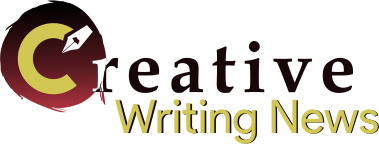
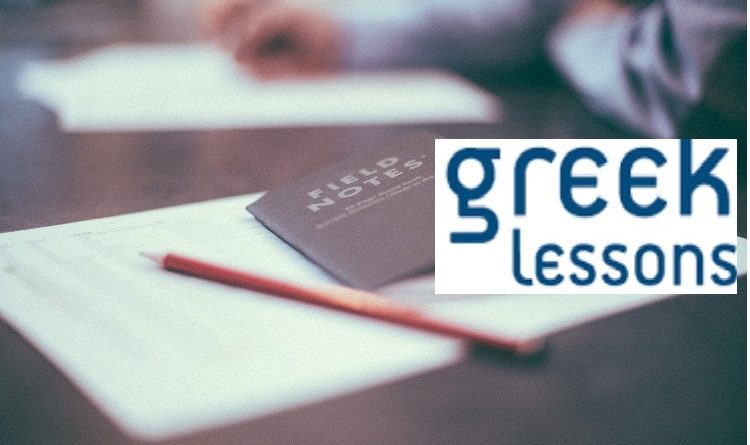
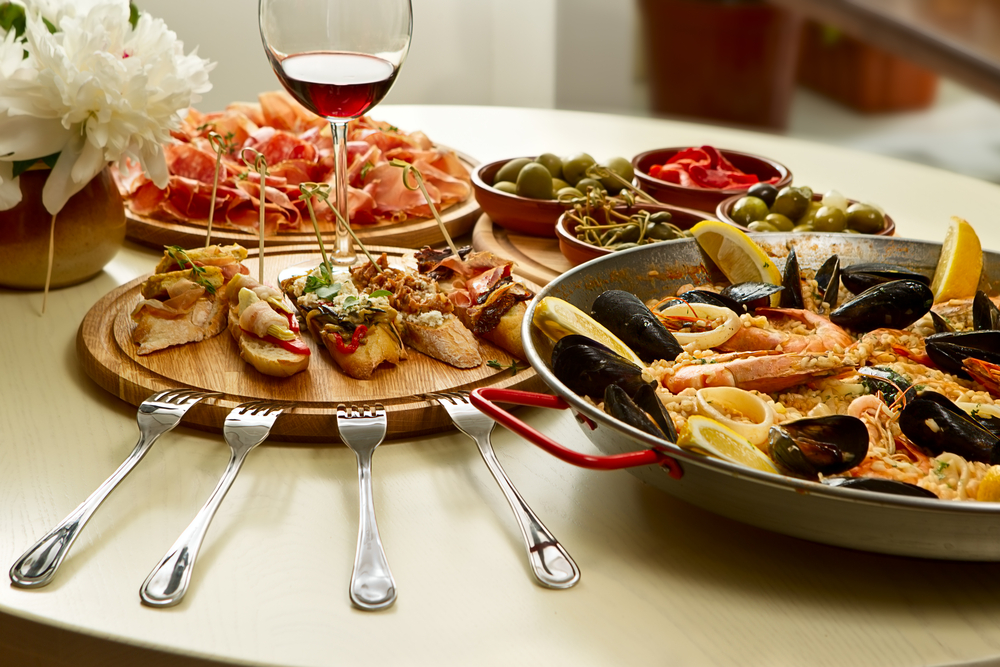
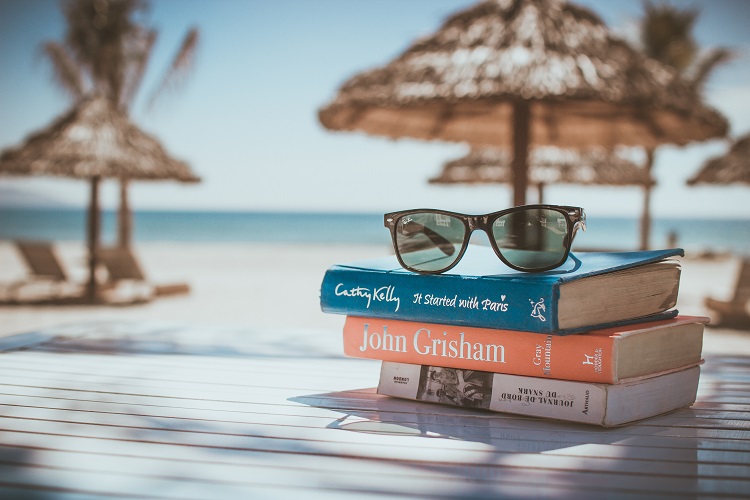

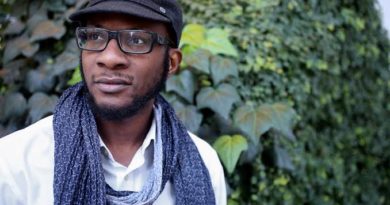
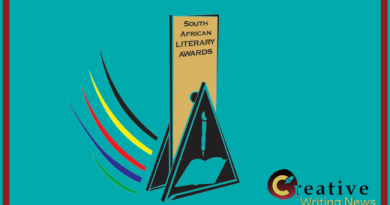
Υπέροχες, εξαιρετικές λέξεις. Wonderful, excellent words. Ευχαριστώ πολύ για από την Ινδία. I was imotional when I was reading your beautiful words. I am Indian and a very very ordinary person but I think there is Greece inside me. Whenever I read, saw or discuss about Greece it takes me into a different world. I am also learning Greek language out of sheer love through on line. Hope that one day I can recite a poetry in Greek in a Helinic island.
Glad you enjoyed reading this/ And I am glad to hear that you are learning the Greek language. Don’t give up. Keep reading and learning the classic Greek poems and stories you love.
Pingback: University Of Michigan's African Literature Today Calls for Papers/ How to Submit - Creative Writing News
Pingback: Upskilling With Edtech Tools: All You Need To Know About Writing Certifications - Creative Writing News